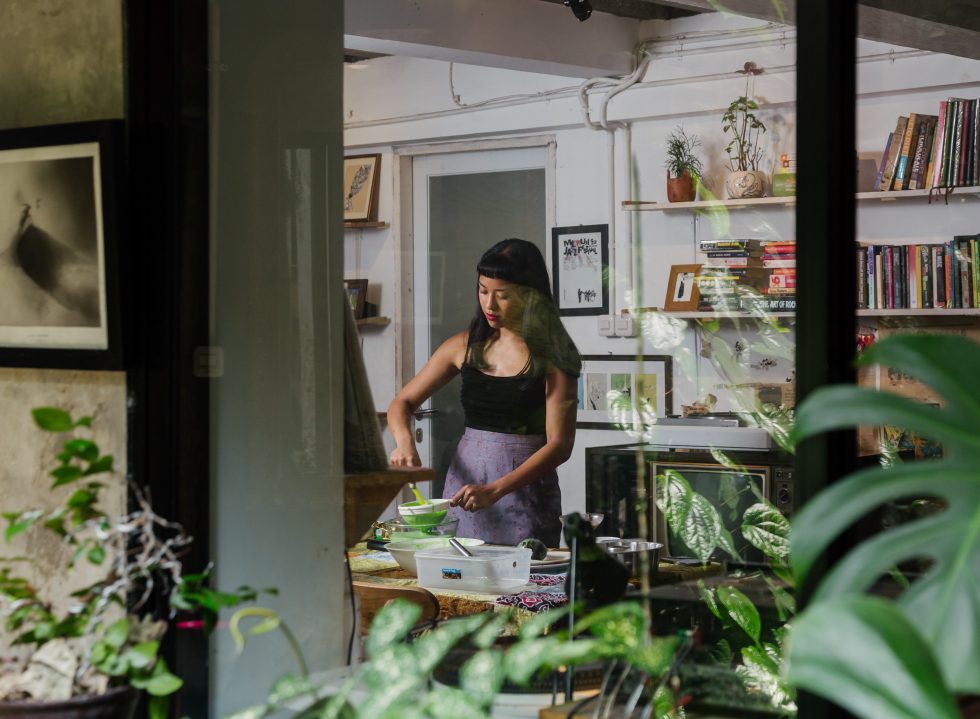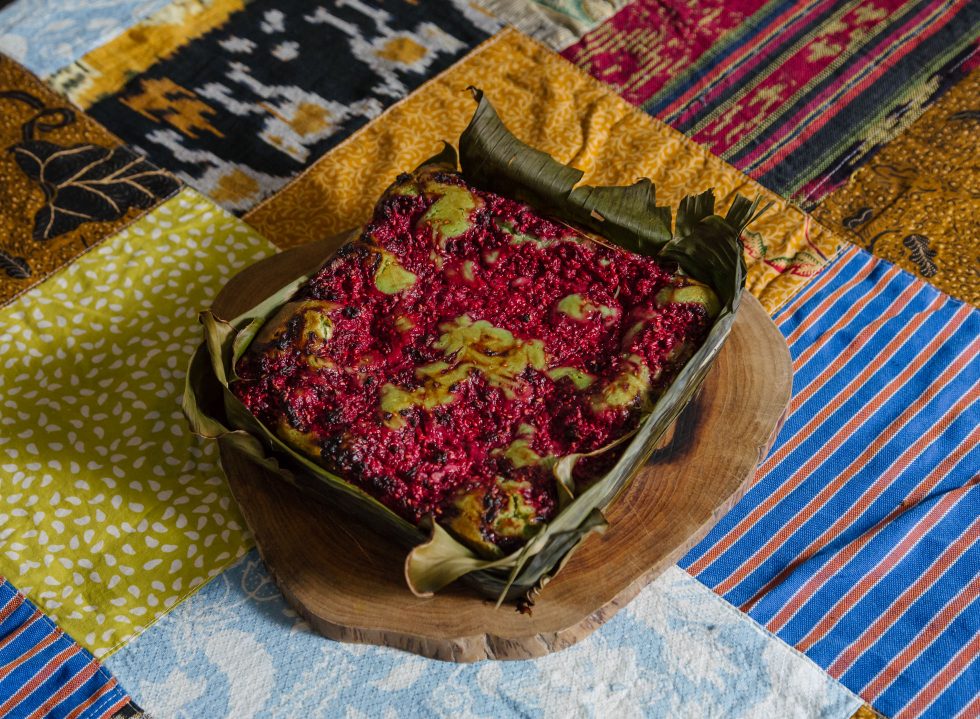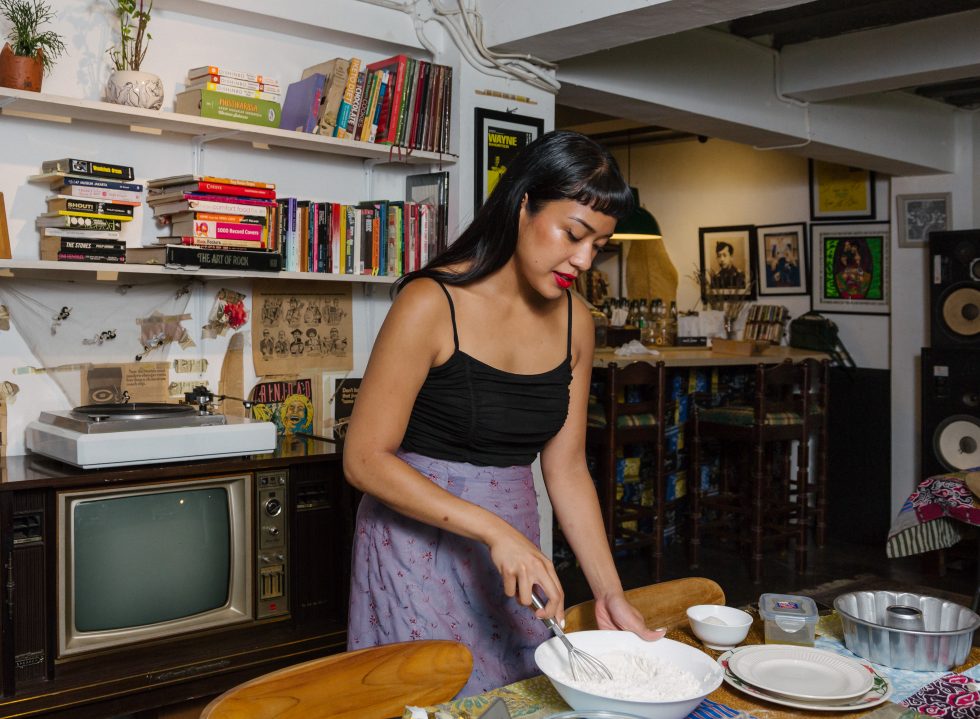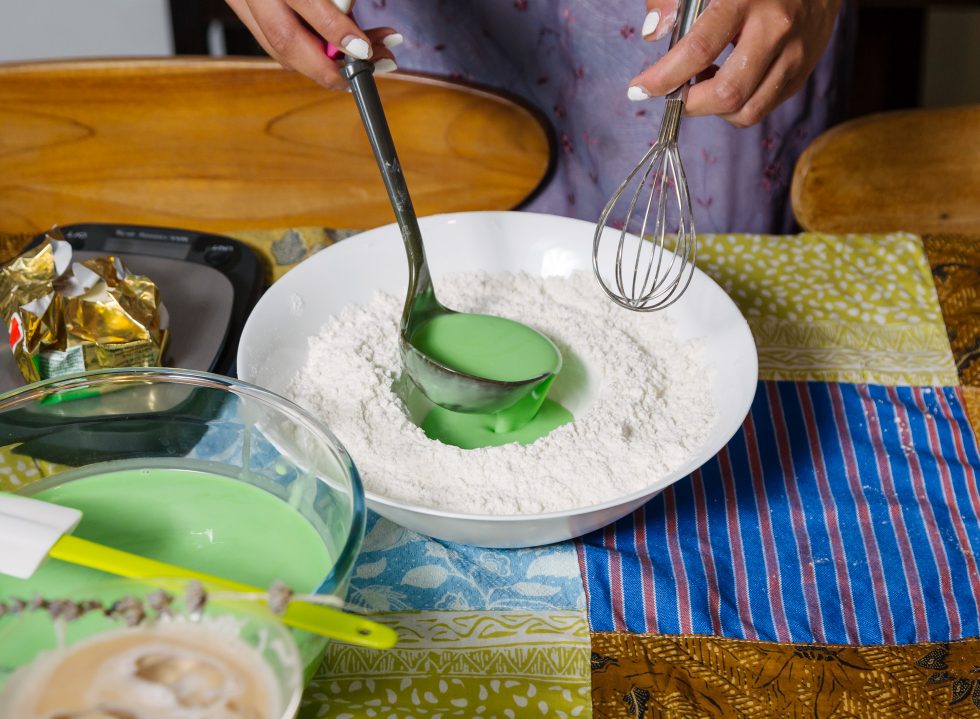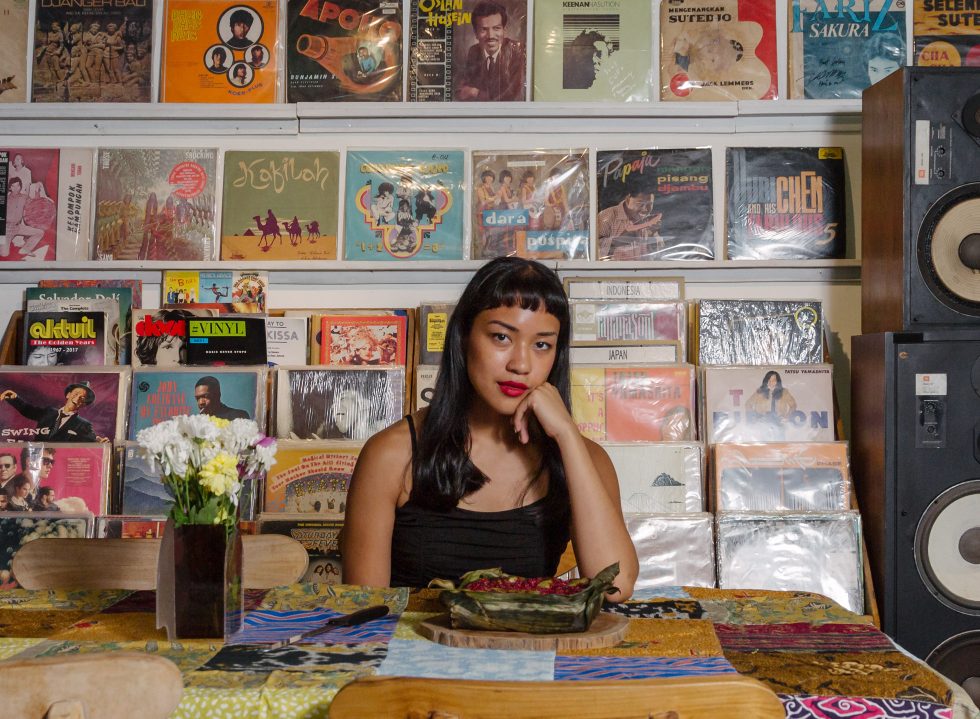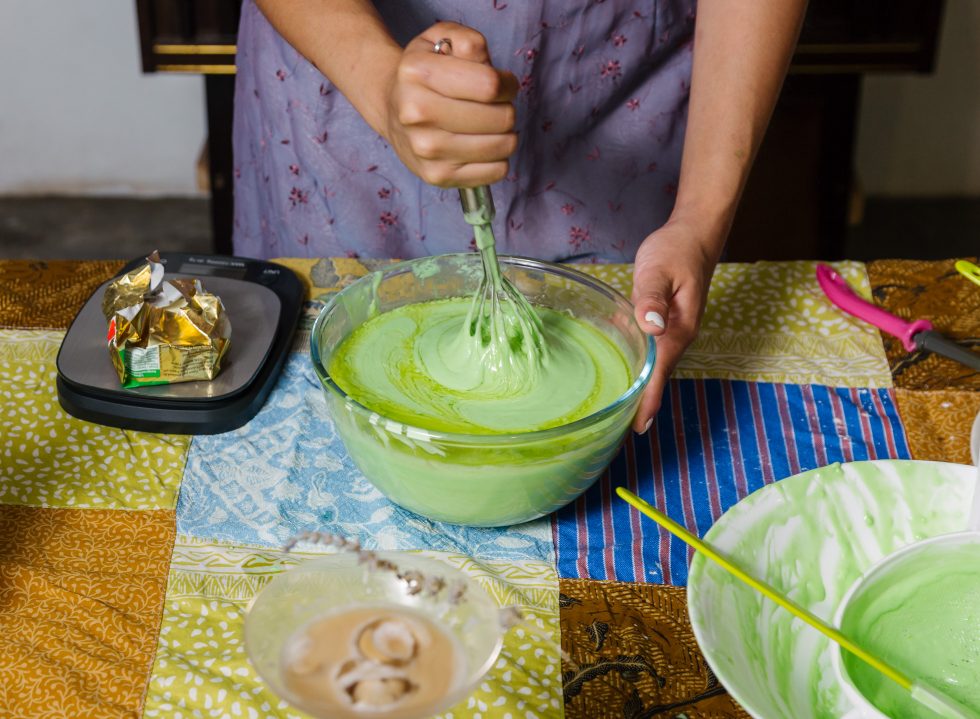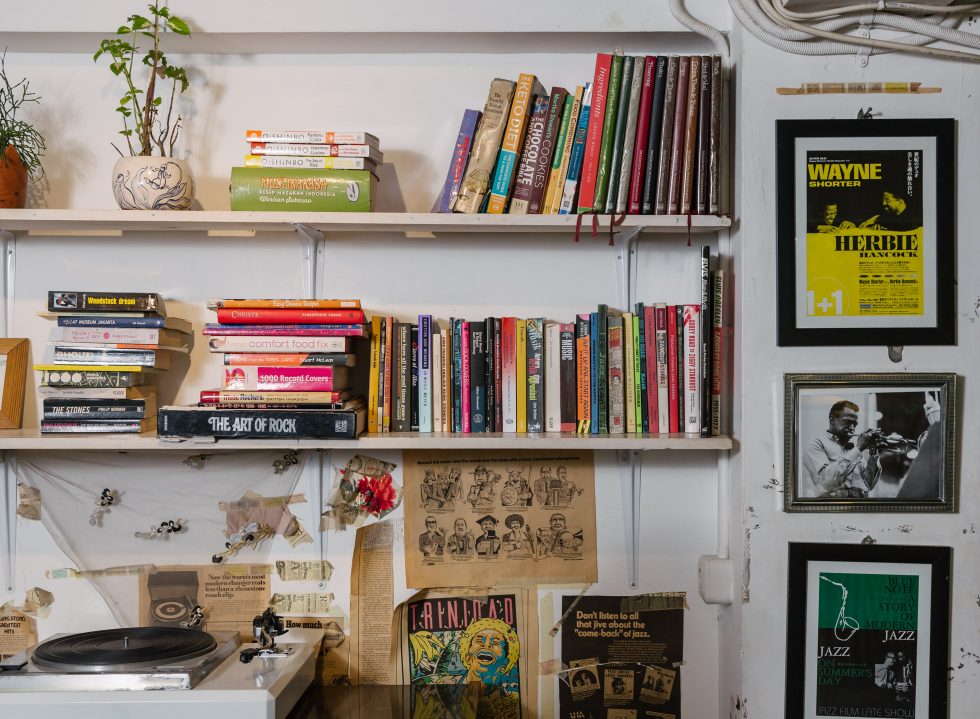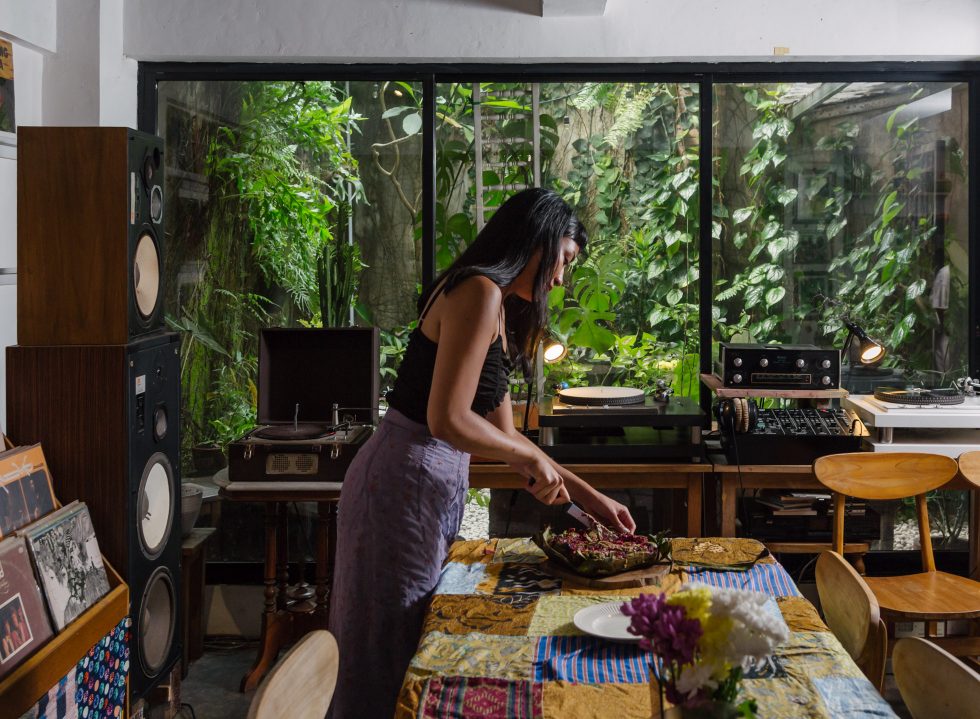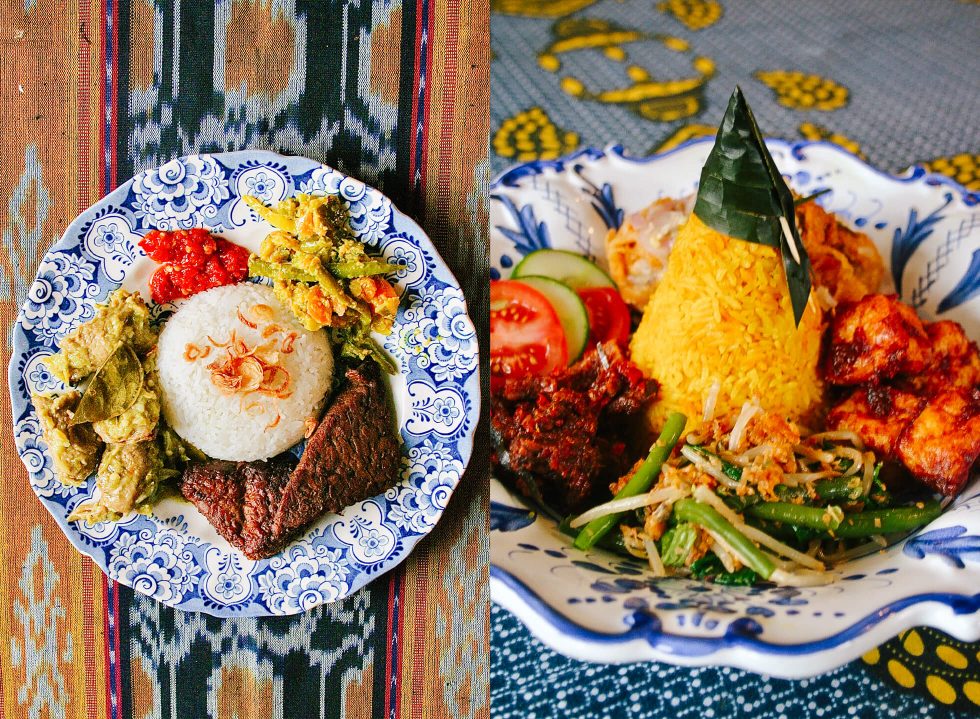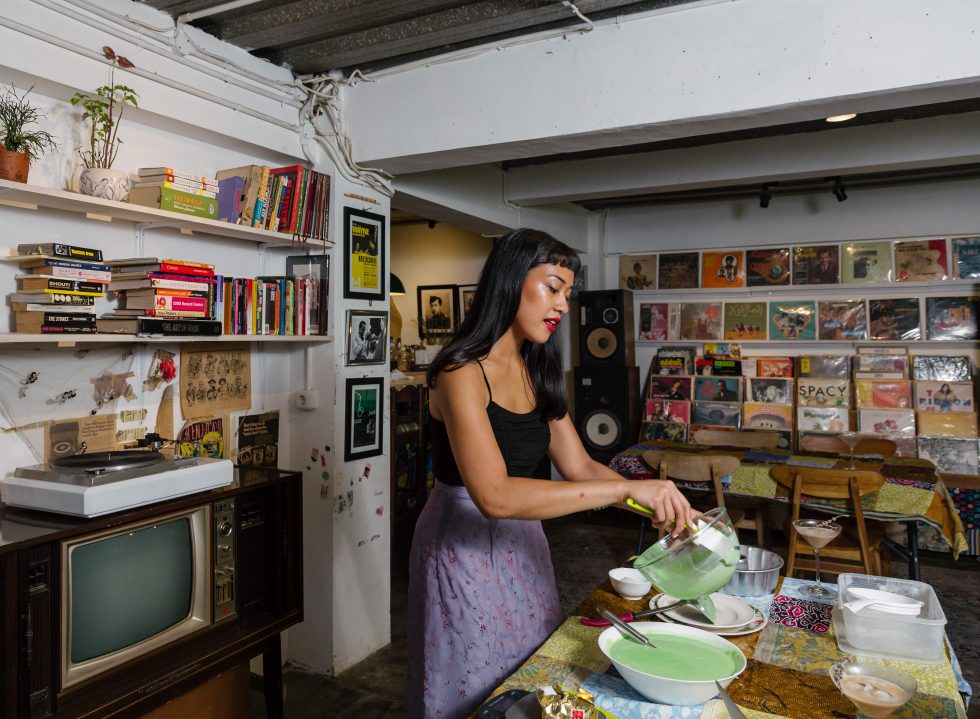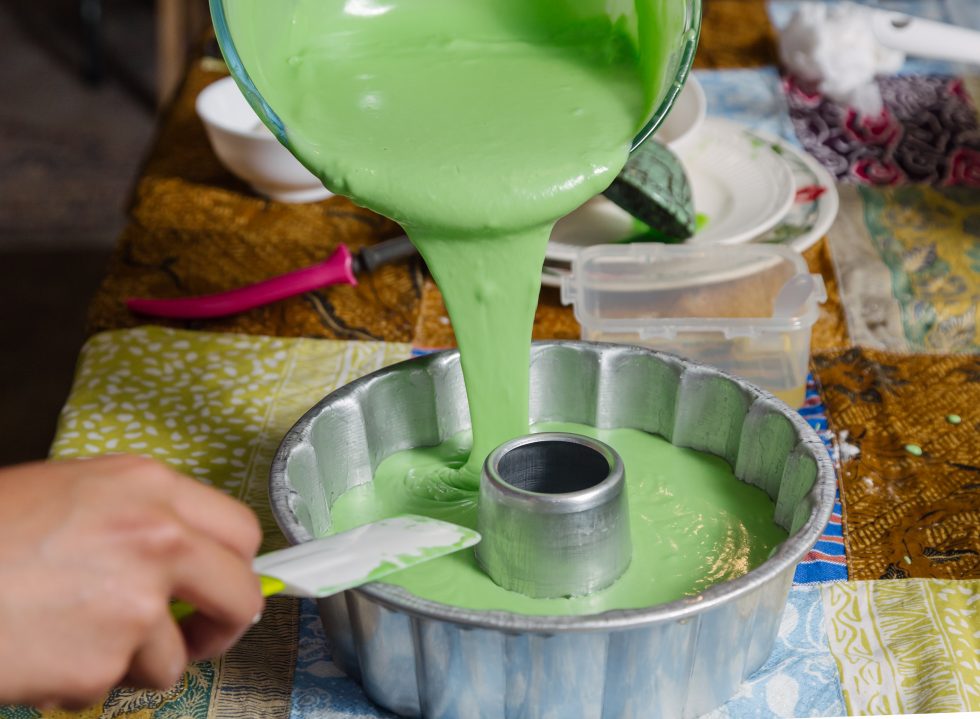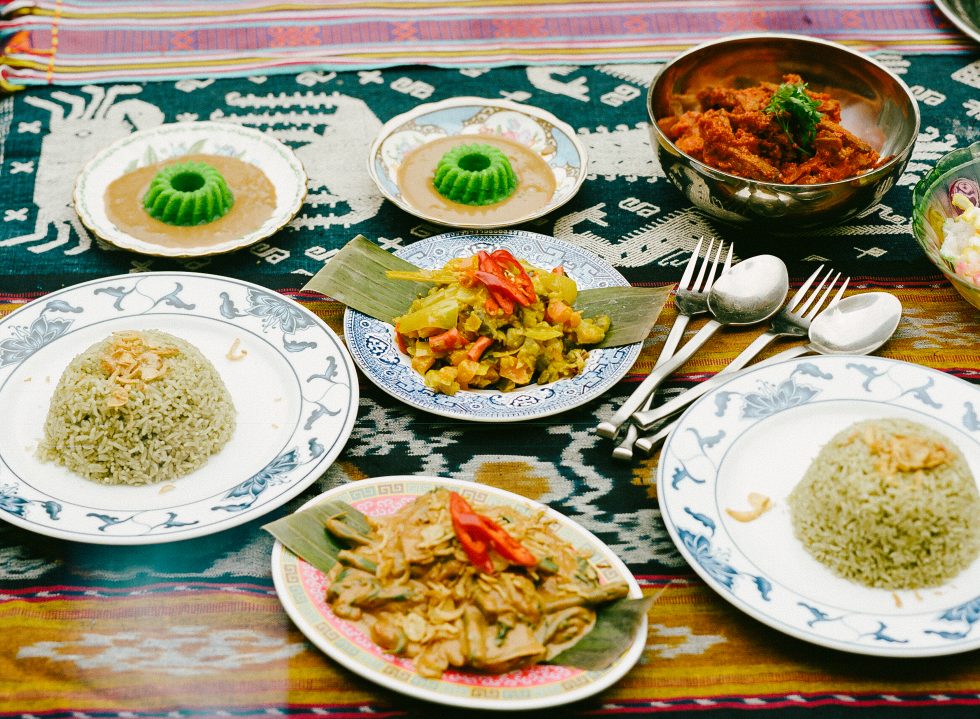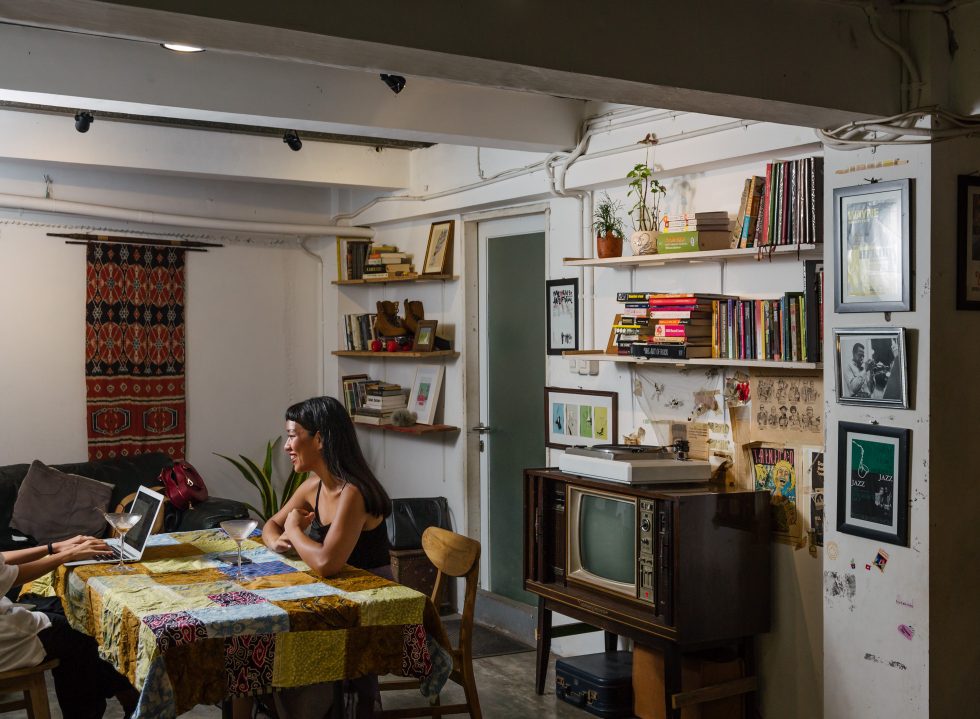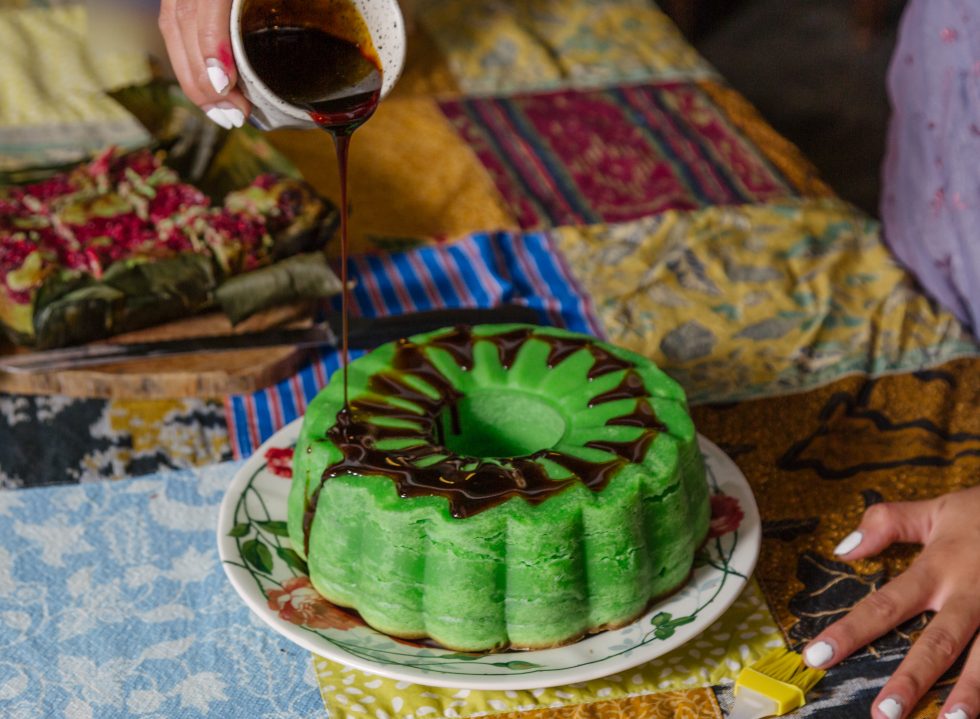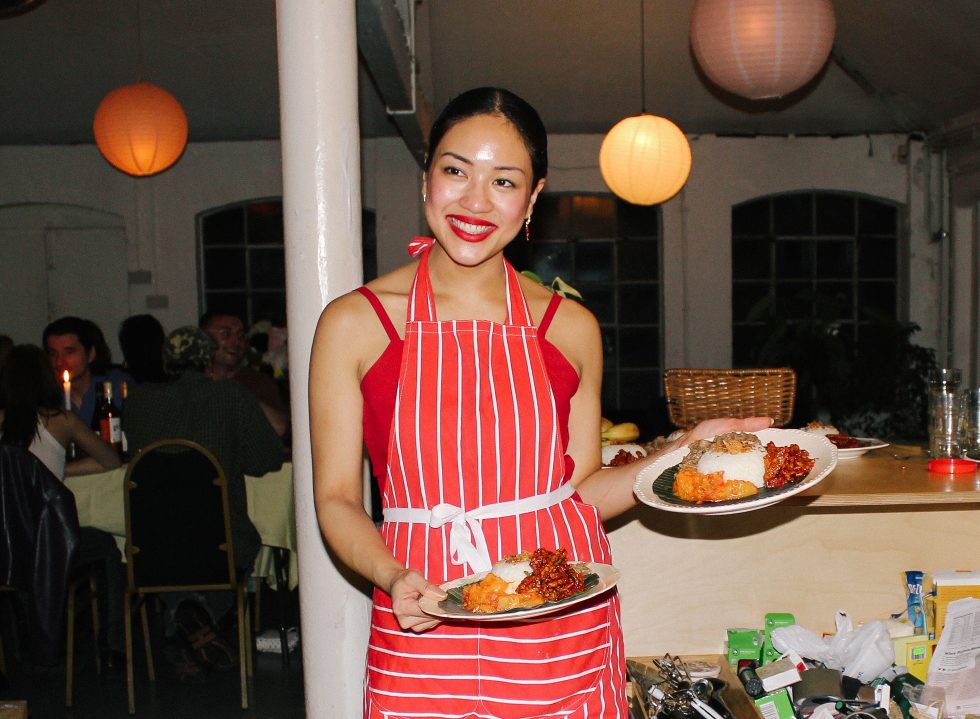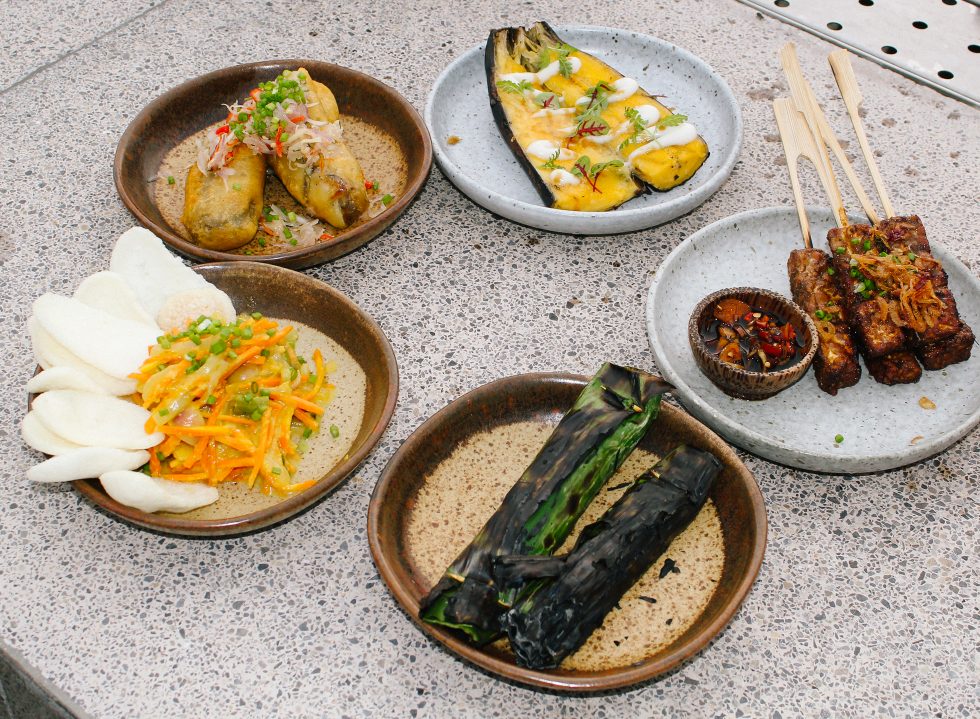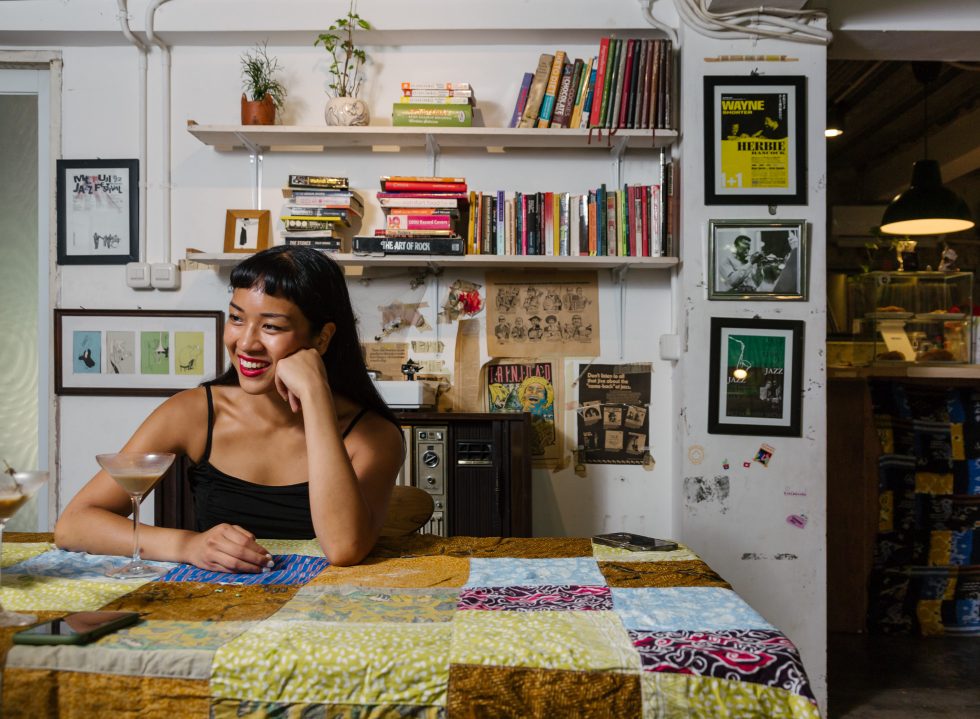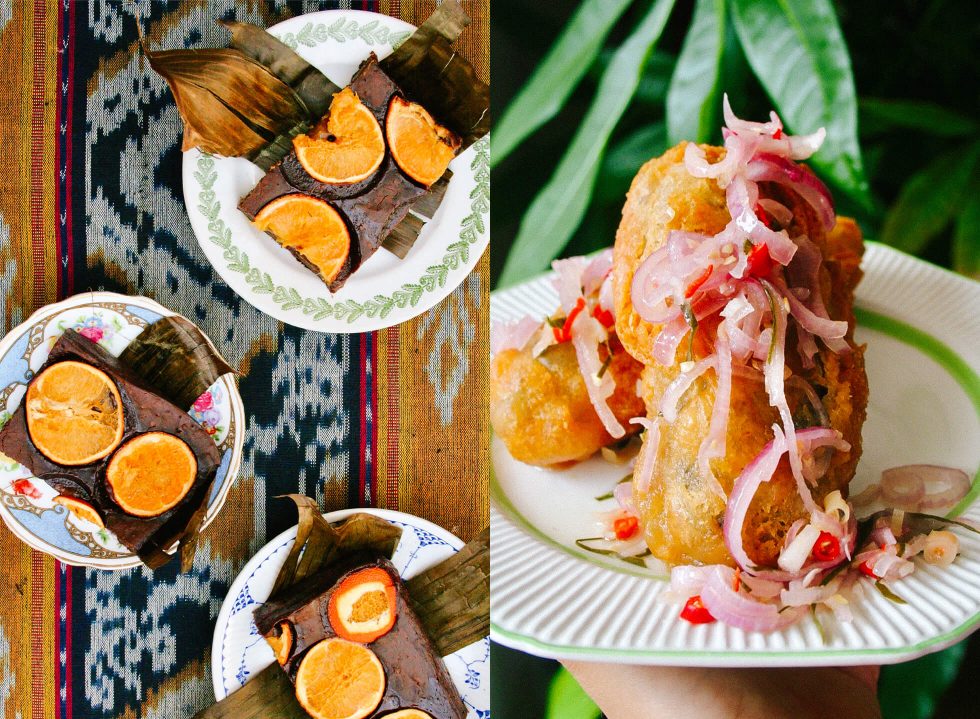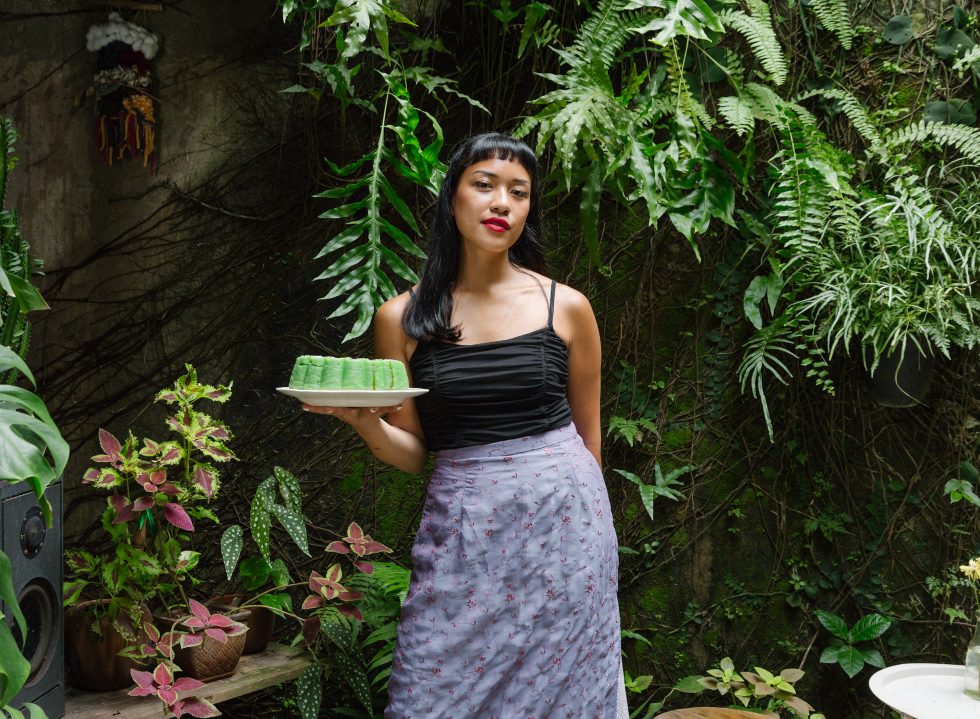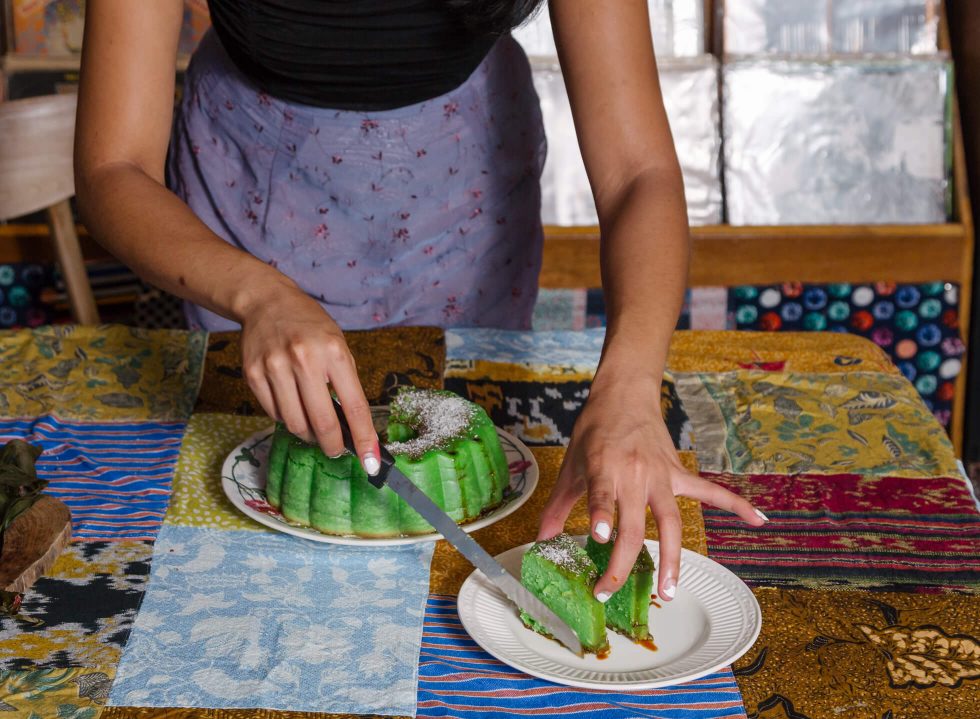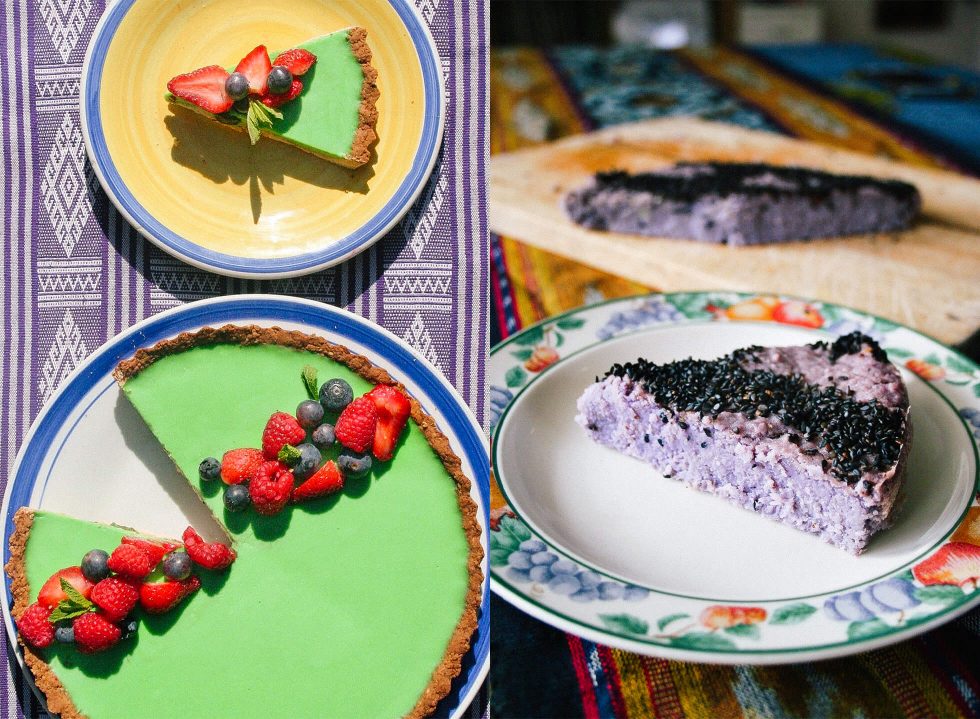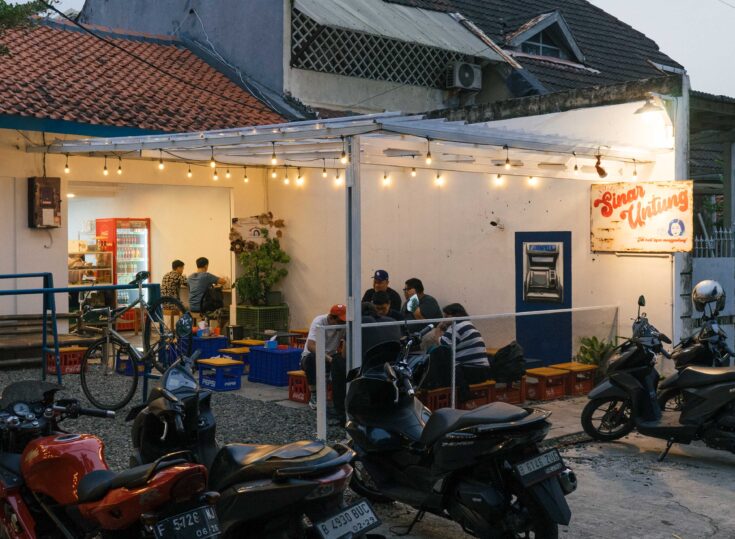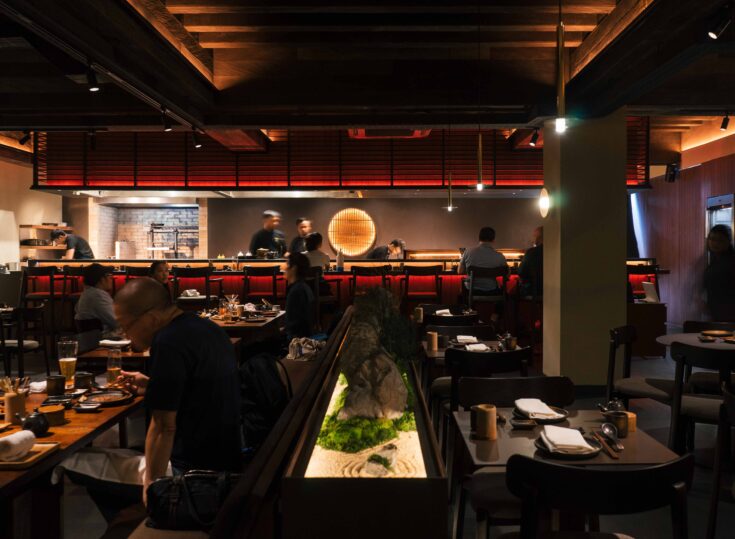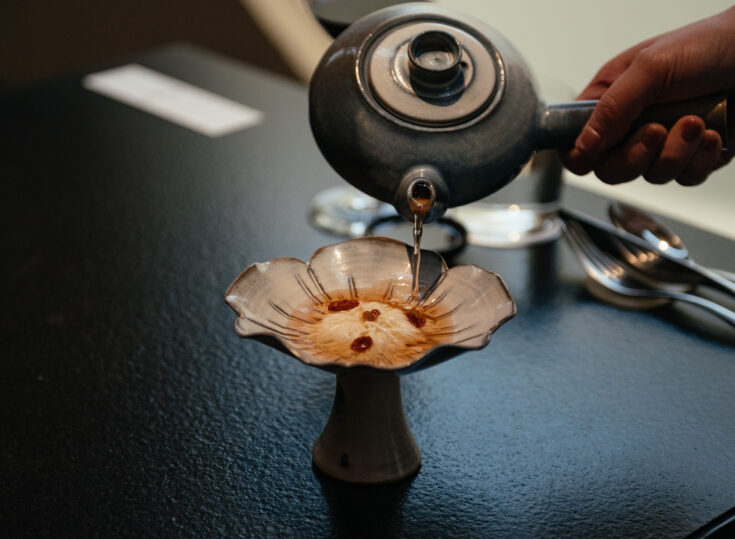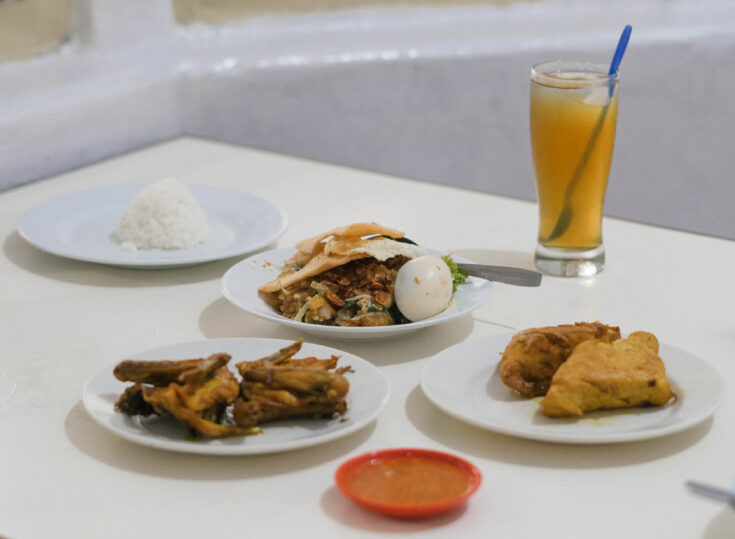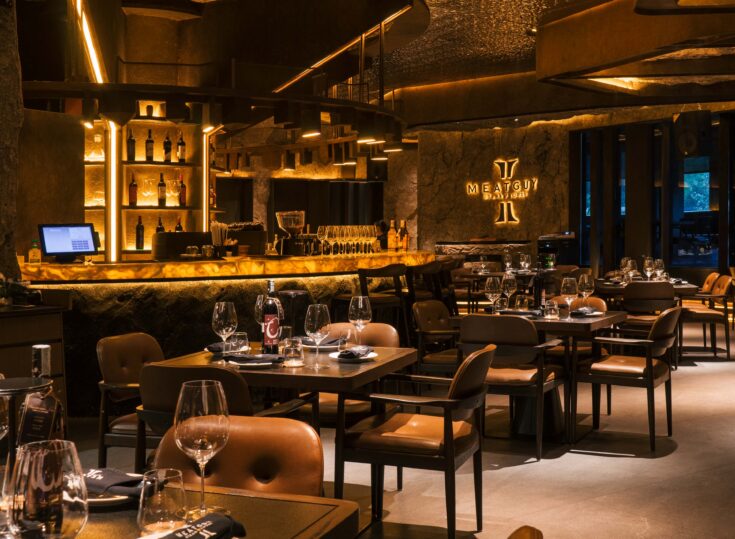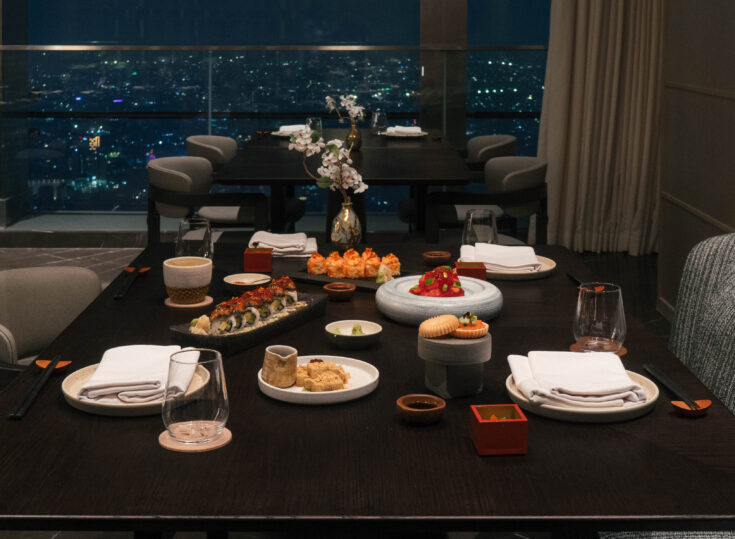Many Indonesians who live away from home could say they started cooking Indonesian dishes to fulfil nostalgic longing or remedy homesickness, but only a few could say they channelled their kitchen explorations into a supper club-slash-home delivery and catering business, and fewer could say they succeeded. Rahel Stephanie has laid claim to all three.
She moved to London nine years ago, first for a bachelor’s degree in Fashion Marketing at Istituto Marangoni, then a master’s in Fashion Retail Management at London College of Fashion. At the end of 2019, she started Spoons, a plant-based Indonesian home-cooking business, which she operates between her full-time job in advertising.
It was 10 am on a Friday when we met at SUBO, where she arrived in a purple embroidered skirt and a black top with matching kitten heels alongside her sister, Becky. Introductions were made over coffee orders, and just before we settled into our seats, she asked, “can I melt the palm sugar before we start?”
Our morning was sectioned around the oven time required to make her Bolu Kojo, a moist, pandan-based cake from Bengkulu in South Sumatra—a Spoons’ favourite. Watching her mix flour, pandan extract, coconut milk and eggs in a bowl felt like watching a cooking show on YouTube, where the chefs expertly juggle their attention between prepping the dish while maintaining eye contact and keeping the conversation rolling. Funnily, that’s how she learnt how to cook. “Indonesian YouTube aunties, you gotta love them. That’s where I learn all my tricks,” she added with a smile.
She made sure to check once more that the oven was pre-heated before finally fixing a comfortable spot on the wooden chair. In between sips of coffee and her self-picked vinyl album, Mort Garson’s Plantasia playing in the background, we spoke about her life in London: how it would be her last month working in advertising before jumping to do Spoons full-time, her recent move to Southeast from East London, and the lack of decent Indonesian food in the market.
“Indonesian YouTube aunties, you gotta love them. That’s where I learn all my tricks.”
“It irks me so much when I see the word ‘satay’ at food markets only to find it referring to the peanut sauce. I mean, there are over 250 types of satay in our archipelago, and I hate to see it reduced to a sauce that is taken out of context and misapplied into dishes like satay salad or satay rice bowl. It’s like when people claim they love Indonesian food but they only know nasi goreng or fried rice.”
It was clear from her manner of speaking that this was something she’d been considering for some time. “I grew increasingly aware of how diluted Indonesian cuisine in London was. A few existing representations were wildly inaccurate, and I would hate for that to be people’s introduction before we even established our culinary identity abroad.”
She started by cooking dishes for friends at supper clubs twice before the lockdown came into effect, even when plans for the third were already underway with bookings sold out. This didn’t stop friends from dropping messages on her social media and cheekily requesting deliveries.
Within months, orders for home delivery were piling up. The lockdown gave her the time she needed to test recipes and get serious about her cakes, which made a debut during the pandemic and became one of the best-selling items in Spoons’ repertoire. Working out of her home kitchen in East London, Rahel spent mornings, lunchtimes and after-work hours moving from one task to the next: prepping and chopping ingredients, seasoning and stirring dishes, and packing them up to be ready for delivery.
In the early months of the pandemic, she initiated ‘Meals on Wheels’, a pay-as-you-feel home delivery service where all profit goes to support the NHS (National Health Service) in England. Every Sunday at dinnertime, set meals of rice with traditional side dishes—from gudeg (jackfruit slow-cooked in sweet coconut milk), nasi liwet bakar (aromatic coconut rice grilled in banana leaves) to tempe kering (spicy glazed crispy tempeh)—alongside a choice of dessert are packed in boxes, which her partner would then cycle across the city to drop off at select pick-up points. In the end, they managed to collect up to £2000 altogether (which is about IDR 35 million).
Apart from the obvious taste factor, part of Spoons’ appeal is the community it fosters. As much as it was made to represent Indonesian cuisine and get people to experience it for the first time, it also provided comfort and a sense of home for Rahel as well as fellow Indonesians living away from home.
“There’s a strong educational element to Spoons, not just for those encountering it, but for me too.”
Indonesian graphic designer, Khalisha Tambunan, who works in London and came to one of her dinner parties at the end of 2021 had nothing but good things to say. “I think it’s such a great way to get introduced to food Indonesians eat on a daily basis. There’s a warming familiarity to it, as it’s the same meals I would eat whenever I’m back home. I recommend trying the battered banana blossom, it’s that good!” she shared in excitement over an Instagram message.
The same dish also made its way into her kitchen takeover at Potato Head in Bali last month, where Rahel and the kitchen team served it—marinated in seaweed and soy sauce before topped with a generous dollop of aromatic and spicy Balinese relish, sambal matah—alongside sate maranggi (marinated tempeh in sweet soy sauce) and lemper tahu bakar (tofu wrapped and grilled in banana leaf) on the rooftop, marking the very first-time Spoons have ever done anything outside London. It sold out in three hours.
For Rahel, it all “points back to the people. I don’t just love chopping garlic for five hours, you know (laughs). I do it because I want to dine with people, hang out with them and watch them eat my food.”
She confessed how her childhood was very much not the stereotypical cookbook pretext of ‘I watched my mother and grandmother cook from the age of three and I have always wanted to be a chef’. But she turned that into her advantage. “My childhood was very chaotic, but I guess that’s what makes it more precious when I cook today. In a way, it’s my chance to bond over food with my chosen family in London.”
Much of Spoons’ menu involves a lot of scouring and familiarizing herself with East and Southeast Asian to African markets in London for ingredients or, when pressed, close-resembling substitutes. “I learned so much about the crossover between different cuisines. I didn’t know that they used labu siam, or chayote in Caribbean and Nigerian cuisines. Not to mention plantain!”
For ingredients that are hard to come by, or outright unavailable, she’d learned to adapt to what’s available. For instance, instead of using asem kandis for her rendang (slow-cooked and braised beef in spiced coconut milk), she found Indian kokum of the same mangosteen family to achieve a similar effect, to temper the complexity of the spices with a hint of sourness. Others, like turmeric leaves and lemon basil, she grows in her back garden, though she admitted she’s very protective of those and rarely uses them when cooking in large batches.
One might notice that a lot of the dishes at Spoons are plant-based. While in some cases, chicken may be subbed by grilled oyster mushrooms or seitan, Rahel explained how “Spoons is Indonesian before it’s vegan. It gives context that a lot of dishes in my culture are actually plant-based to begin with.”
“The catalyst of making Spoons mainly plant-based was actually tempeh and how it’s abusedly glamourized into this organic, vegan superfood. Most people eat it not knowing it’s an ancient Javanese creation first made out of necessity because most people couldn’t even afford meat, and it’s been around for centuries!”
In all her meals, Rahel tries to mirror the diverse culinary range of Indonesia, placing emphasis on lesser-known, regional dishes. She approaches her desserts and cakes the same way but added “that’s where I get to daydream a little”. Spoons’ best-seller is the Pandan Blackberry Blondies, which comes with a well-guarded recipe she vowed she would only share with her sister Becky, “and it’s only because Becky can’t cook!” Rahel gushed and the two laughed.
“Spoons is Indonesian before it’s vegan. It gives context that a lot of dishes in Indonesia are actually plant-based to begin with.”
When we met, she was close to the end of her second of three weeks in Indonesia. She’d returned from Bali, followed by a quick trip to Medan, where her parents are from and where she celebrated her 28th birthday with a Bataknese spread. “I wouldn’t have it any other way. I’m pretty sure I ate about 10 meals a day. It was a very insightful trip, I was taking pictures and jotting things down, thinking about all the different things I can implement in my next menu.”
The oven beeped and she made her way to take the cake out and let it cool down. While we waited, we finally dug into the popular Pandan Blondies, which she made a few days prior to keep the recipe a secret. “One day while we were in lockdown, my partner went out for a really long walk and came back home with a bucket of blackberries and asked me to turn it into a cake. I had some leftover coconut milk in the fridge and it’s just one of those things that happened instantly”.
The day before we met, she met up with Indonesian culinary icons William Wongso and Ade Putri and recalled how she got in touch with the former over The New York Times cooking recipe of soto ayam, which many Indonesians in the comments found to be inaccurately presented. She recalled how, as she was typing up a comment on the Instagram post, that William Wongso had already left one.
“I was really moved that someone of his calibre would take time to explain how the dish is originally made, detailing the ingredients that would normally be included. I immediately reached out to him and we’ve been exchanging messages on WhatsApp since. He told me I should let him know when I’m back in town, and of course, I did.”
The smell of pandan filled the room, wafting over our conversation—it’s bold and beckoning. She got up to check on the cake and exclaimed, “It’s good, it’s good!” as she did the toothpick test—indeed, it exceeded expectations. Instead of the typical recipe for Bolu Kojo, which adds condensed milk in the batter for sweetener, she swapped it for a glaze of palm sugar with a sprinkle of desiccated coconut at the end.
As we indulged in a slice of cake each, I asked her what she’ll take back to London with her flight only a few days away. “I’m stuffing my suitcase with lots and lots of spice and textile. I’m also determined on taking this large tumpeng mould. Can you believe I’ve been using party hats?” she burst into laughter as tumpeng, an Indonesian ceremonial dish of yellow rice served surrounded with traditional sides, is usually shaped with a cone-shaped mould.
When she exits the plane at Heathrow, she’d have another month at her advertising job before she throws herself into Spoons full-time. On this, she shared, “I’m really nervous, but of course really excited at the same time. There’s a strong educational element to Spoons, not just for those encountering it but for me too. I’ve never learned so much about my heritage and culture, it’s a special way of connecting and keeping it alive.”
